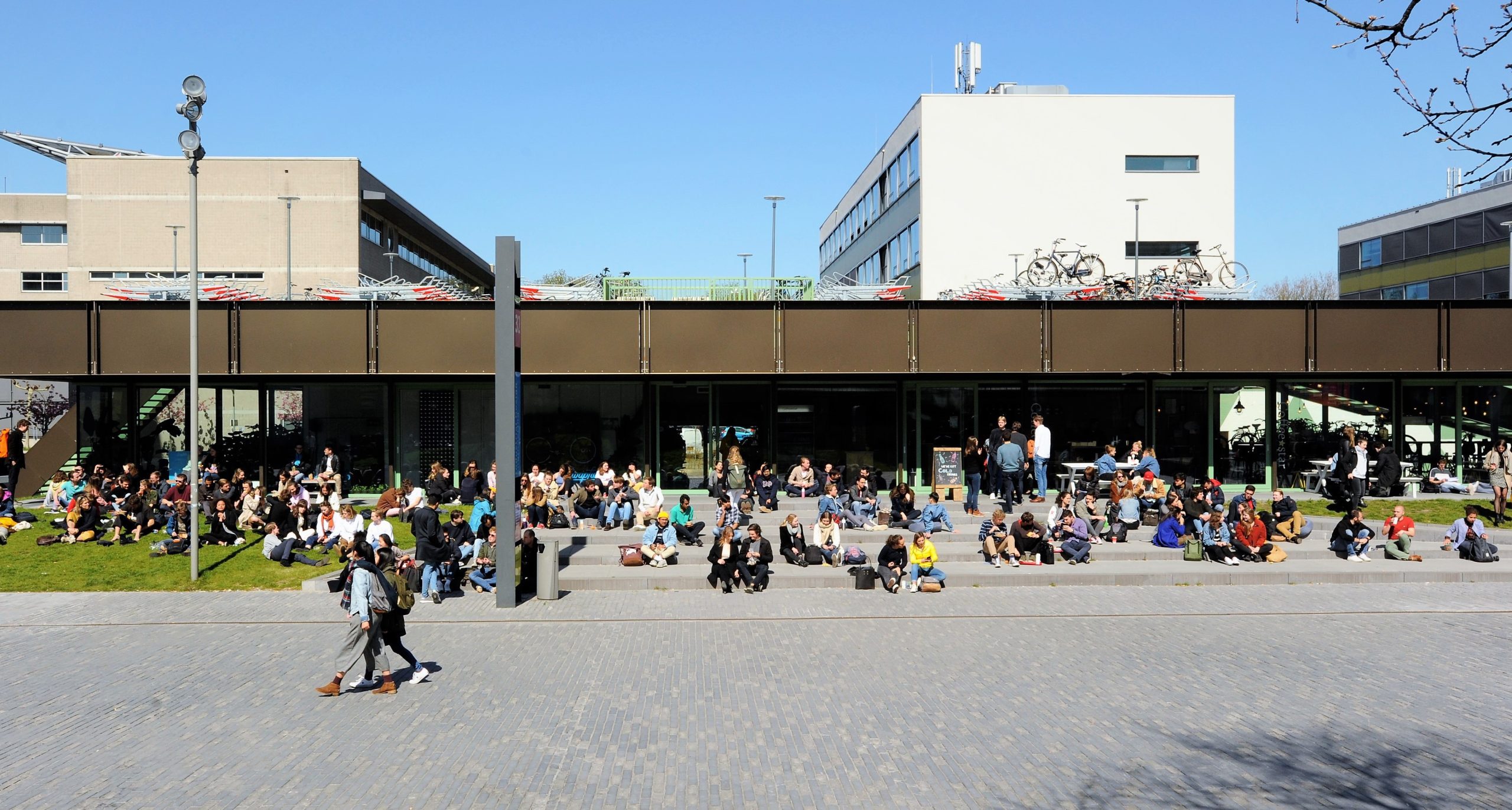Only four in ten prospective students from outside Europe are still determined to come to the Netherlands to study, according to a survey by Nuffic.
The effect of the corona crisis on the number of foreign students enrolling at TU Delft is as yet unknown. (Photo: Marjolein van der Veldt)
In other words, the current crisis looks set to have yet more of an impact on the Netherlands’ universities and universities of applied sciences: they will soon be welcoming fewer foreign students. But how big is this shortfall likely to be?
Nuffic, the Dutch organisation for internationalisation in education, conducted a survey at the end of April, among 941 potential students from countries such as China, India and Brazil. The survey took in the ten non-EU countries where Nuffic has a Neso office (Neso stands for ‘Netherlands education support office’).
Although the corona crisis is far from over, interest in studying at a Dutch university or university of applied sciences remains high, Nuffic reports. Eighty percent of the students surveyed are still interested in pursuing educational opportunities in the Netherlands.
Of that group, 40 percent are still keen to register. About a quarter of those asked believe they will have to abandon their plans due to the corona crisis. Over a third are still wondering what to do.
Good option
Of the potential students, 38 percent answered that they currently want to come to the Netherlands as planned to attend lectures, seminars and tutorials in person. One in ten students think that online education would be a good option.
Others prefer to postpone their arrival until the earliest opportunity (14 percent) or the start of the next academic year (21 percent). A small minority (4 percent) have decided to pursue their studies in their own country and 13 percent are still undecided.
‘The question is whether internationals dare to choose to study abroad’
Financial worries
Of course, in order to study in the Netherlands, you first have to be able to get on a plane. Over half of the students surveyed are afraid that travel restrictions will prevent them from flying to the Netherlands. Financial worries are also a factor: students think it will be harder to obtain a scholarship or are unsure about their income in a crisis-hit economy.
Concerns surrounding the arrival of foreign students have been circulating for some time. British research agency QS reported earlier this year that over half of all prospective international students are playing it safe and postponing their plans to come to Europe by at least one year due to the coronavirus.
TU Delft applications
The effect of the corona crisis on the number of foreign students enrolling at TU Delft is still unknown. “We can’t really tell until we have collected the tuition fees this summer,” says a TU Delft spokesperson. “Some of the students who (pre)enrol cancel their enrolment because, for example, they choose to study somewhere else. In this situation the question is, apart from possible travel restrictions in the Netherlands or the home country, whether internationals now dare to choose to study abroad”.
HOP, Evelien Flink / Delta, Marjolein van der Veldt
Translation: Taalcentrum-VU
Do you have a question or comment about this article?
redactie@hogeronderwijspersbureau.nl


Comments are closed.